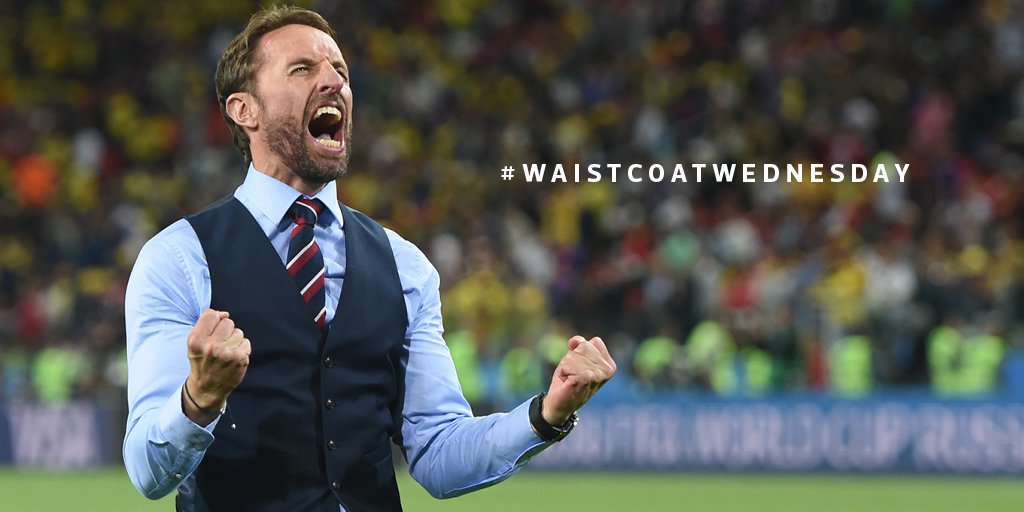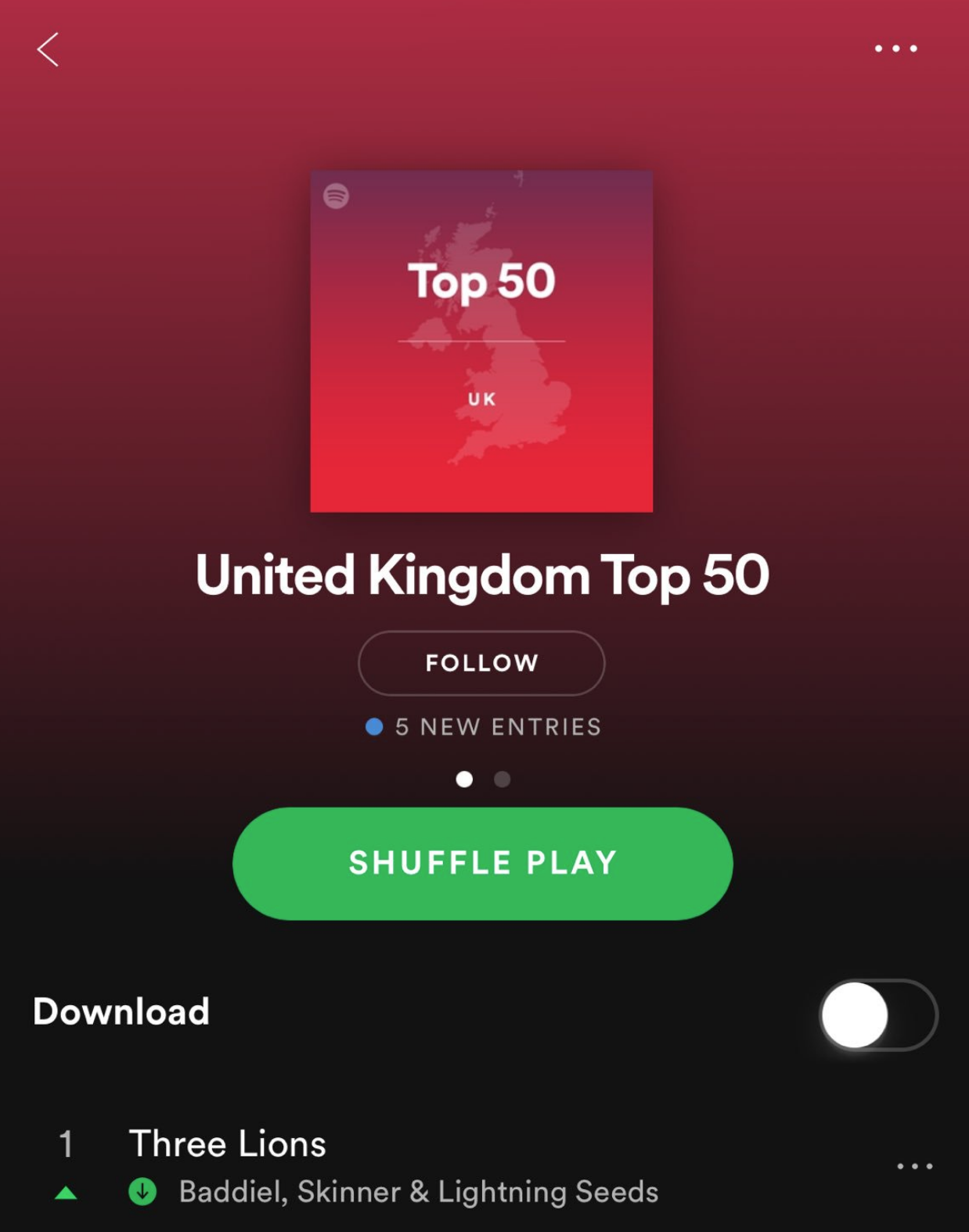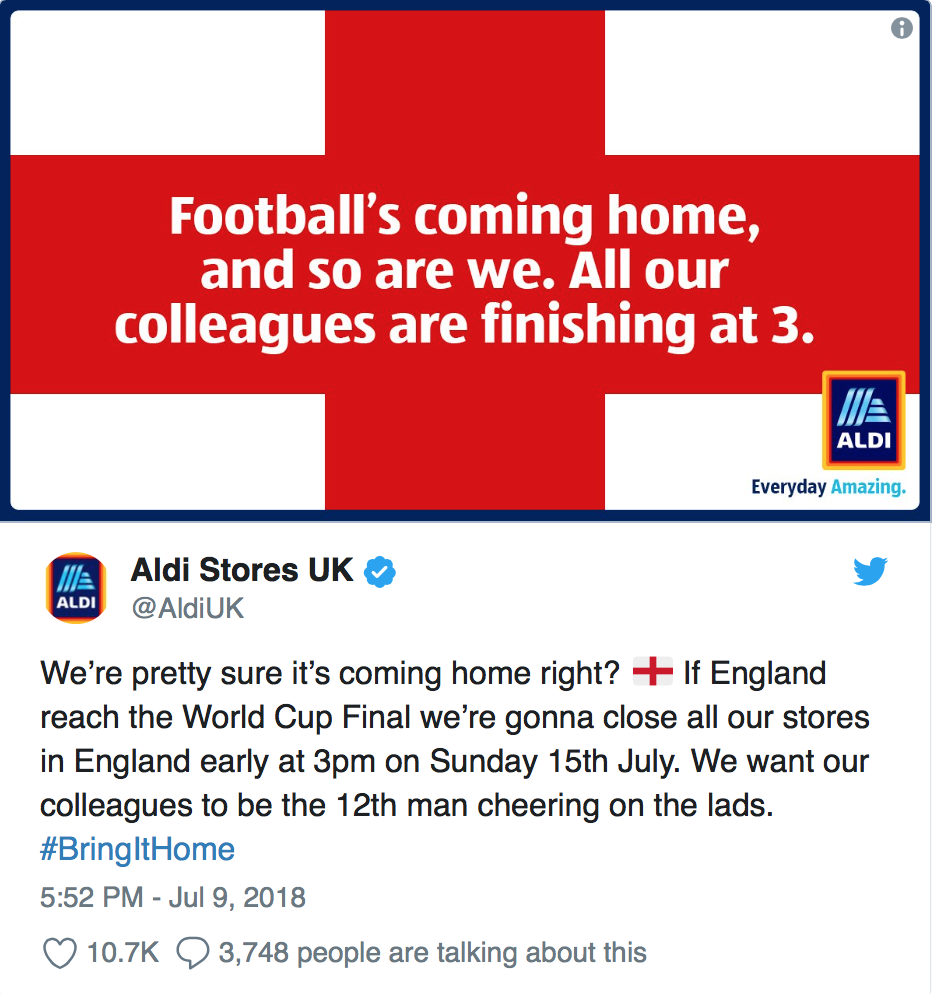The 2018 World Cup has been one of the biggest and most successful events in recent years. The event has been broadcast globally and attracted millions of different spectators.
However, perhaps more importantly, Gareth Southgate’s vibrant England side has managed to completely change people’s perceptions and, in the process, captured the hearts of a nation. The term “football’s coming home” dominated our vocabulary throughout the tournament and meant far more than winning. Football truly had come home for the English people.
We’ve had a look at England’s World Cup journey, and the lessons that marketers can learn from it to better understand the different ways to market to such a diverse audience:
-
Backing the boys
This group of England players is extremely likeable. They’re a new young team without massive egos and a manager focused on good attitudes. This makes them easy for people to get behind and support.
The content your campaign creates can be looked at in a similar way. People want to see and read content that is both shareable and likeable, so creating fresh and vibrant content is crucial to engage your audience. Don’t focus on what you want to write, but what your audience wants to read.
-
People like to get together
Pubs and venues across the country have been thriving during this World Cup summer. We’ve enjoyed unparalleled weather and the success of the England national team has bought massive crowds into pubs and at outdoor screens. This has proved that we love to get together to enjoy these events.
Marketers should consider staging face-to-face events, either to network or to showcase their latest product. Face-to-face communication is still extremely important for any business, and meeting someone in person is a different experience from meeting them online. Just because we live in a digital world, doesn’t mean we should forget about the benefits that events might have for your company.

-
#WaistcoatWednesday
In the build up to England’s semi-final against Croatia #WaistcoatWednesday trended across the UK. Fans took to Twitter to support Gareth Southgate’s iconic style and sales in his M&S waistcoat actually doubled during the World Cup.
Gareth Southgate has been one of England’s most relatable managers in years, with a good attitude towards his team and a great work ethic. Companies that show a human touch on social media are able to build trust and loyalty with their audience, just like Gareth Southgate has managed to connect with the English media and public.

-
Halo effect
Brand association with the World Cup has acted as the perfect chance for companies to reach out to a large, attentive audience. This kind of publicity is highly sought after and has proven to be extremely effective. Pubs, in particular, have jumped on the England bandwagon, offering World Cup themed foods and drink bundles, and takeaway companies have offered deals on big match days. More companies should look to get involved with these large-scale events and reap the rewards from being associated with them.
-
Music
Who would’ve thought that a song released in 1996 would once again become the national anthem in 2018? Not only did it happen, but we’re more than glad it did. Three Lions once again became the voice of a country, just like it first did 22 years ago. Music has become such a big part of our lives, with the average person listening to music for 4 hours each day. There are plenty of reasons why your business should consider using music in marketing, from increased visibility from a highly engaged audience to evoking emotional responses.

-
Audience-centric not product-centric
This year’s World Cup was as much about the fans as it was about the actual football. Marketing is feeling a similar shift from a product-centric approach to an audience-centric approach. People don’t just want to buy from you; they now want to buy into you. It’s no longer about messaging, selling, and your product features. It’s about the stories that capture your brand, engaging with your audience, and understanding their feelings.
-
Success Stories
Some organisations took advantage of the hype around the World Cup. Aldi and Lidl promised all staff in stores in England that they could go home at 15:00 on the day of the final, if England had beaten Croatia in the semi’s. Aldi even tweeted “We’re pretty sure it’s coming home right?
“We want our colleagues to be the 12th man cheering on the lads.”
Not only is this a kind gesture, but is also a great piece of PR. It showcases the human side of the brand, and provides a morale boost to the staff.

-
Retro Fun
The 2018 World Cup has bought back a feeling that has been missing from English football for years – retro fun. This joyful excitement had seemingly been lost in the 90s. Marketers can capture this mood by promoting old-fashioned community values in their messaging. Incorporating a retro design to campaigns reminds people of this excitement.

Marketing engages the user, and this is exactly what the England football team are doing. Marketers should look at the success of the team, and think about how they can apply some of these lessons to their own marketing campaigns.
Want a free 1-1 with Tweak on ideas to enhance your marketing efforts? Get in touch: Louise@tweakuk.com
